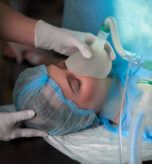Kidney Biopsy: A Key Diagnostic Tool for Kidney Health

A kidney biopsy is a vital diagnostic procedure that allows doctors to closely examine kidney tissue and identify the root causes of various kidney-related conditions. At Dev Hospitals, our interventional radiology experts perform this minimally invasive test with precision and care, helping patients receive timely and accurate diagnoses for improved kidney health outcomes.
🩺 What Is a Kidney Biopsy?
A kidney biopsy, also known as a renal biopsy, involves removing a tiny sample of kidney tissue using a special needle, typically under ultrasound or CT scan guidance. This sample is then analyzed under a microscope to detect inflammation, infection, scarring, or other abnormalities.
At Dev Hospitals, we prioritize patient safety and comfort by using the latest imaging technology and local anesthesia to ensure a smooth and stress-free experience.
Why Is a Kidney Biopsy Performed?
A kidney biopsy is often recommended when:
- There is unexplained blood or protein in the urine
- Kidney function is declining without a known cause
- There are signs of autoimmune disorders affecting the kidneys
- Monitoring is needed after a kidney transplant
- Your doctor suspects glomerulonephritis or other complex kidney diseases
Advantages of a Kidney Biopsy
-
1. Accurate Diagnosis – Helps identify specific kidney conditions like nephritis, lupus nephritis, or chronic kidney disease.
-
2. Minimally Invasive Procedure – A kidney biopsy involves a fine needle and avoids the need for open surgery, resulting in very little discomfort for the patient.
-
3. Detailed Disease Insight – Reveals the extent of damage or inflammation to help customize your treatment plan.
-
4. Promotes Ongoing Kidney Health – The biopsy results play a key role in planning the initial course of treatment and managing kidney conditions over time.
-
5. Helps Evaluate Treatment Response – Assesses how well current medications or therapies are working.
-
6. Reduces Unnecessary Procedures – Prevents trial-and-error treatments by offering targeted insights.
What to Expect During the Procedure
- Duration: Usually takes about 30–45 minutes
- Anesthesia: Local anesthesia is used to keep you comfortable
- Imaging Guidance: Ultrasound or CT scans are used to guide needle placement
- Recovery: Patients rest for a few hours and can typically go home the same day
Frequently Asked Questions
Will the procedure hurt?
What are the risks involved?
When will I get my biopsy results?
Is hospitalization required?
Can I resume normal activities after the biopsy?
Trust Dev Hospitals for Accurate Kidney Diagnosis
At Dev Hospitals, our team is committed to delivering high-quality diagnostic services using modern tools and compassionate care. A kidney biopsy may be a small procedure, but it plays a big role in preserving kidney health and guiding treatment decisions.




